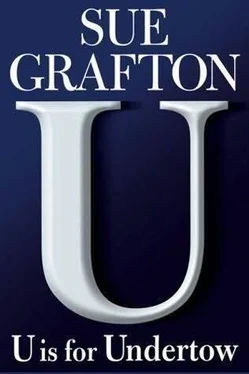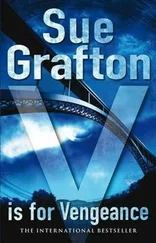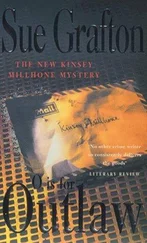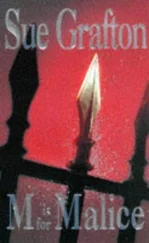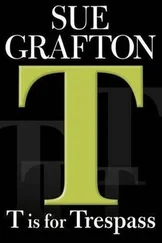After they’d showered and dressed again, Deborah ushered them into the station wagon. “On swim days, we have a late lunch at McDonald’s and then we skip dinner unless we decide to have popcorn,” she said.
“That’s a hamburger stand.”
“Yes, but they have other things as well. I can get you lettuce and tomato on a bun. It’ll be fine.”
Once at McDonald’s, she told Rain and Shawn to secure a booth while she ordered their lunch. She came back to the table with their order number and sent the two off to get paper napkins, salt, mustard, and ketchup in small packets. When their number was called, Deborah went back to the counter and picked up their food, which was piled on a plastic tray. She brought a glass of ice water for Shawn and a large chocolate milkshake that she and Rain would share. She doled out a paper-wrapped sandwich for each and put a large container of fries in the middle of the table where everyone could reach them.
Shawn opened his sandwich. In addition to the lettuce and tomato there was a meat patty with cheese melted on top. He put his hands in his lap and looked at her.
“Do you see lettuce and tomato?”
“Yes.”
“You want condiments? You’re allowed to eat mustard and ketchup, aren’t you?”
“Sure.”
Rain was munching on her burger, dipping fries in a puddle of ketchup and eating them rapidly. Deborah bit into her cheeseburger, and a moment later Shawn picked up his and took a hesitant bite. Neither of them said a word, and she kept her attention focused elsewhere. The next time she looked, Shawn had devoured his lunch.
“That was quick. You want another one?”
He nodded.
She ordered him a second cheeseburger, and when that was ready she brought it to the table, passing him an extra straw so he could help with the milkshake, which she said she and Rain couldn’t finish without help.
After they got back to the house, she moved Shawn’s clothes into the dryer. Later the two of them folded his clean clothes and made a neat pile of them. Then he and Rain read stories and worked on her printing skills. For supper they had a huge bowl of popcorn, corn being a vegetable, as Deborah pointed out. She made sure they bypassed the television set, and played board games until Rain’s bedtime at 8:00.
Deborah asked Shawn if he wanted to sleep on the couch. She had a knitting project she was working on and said she’d work in the next room.
The idea made him anxious. “I better not. Mom and Creed might come back and wonder where I am.”
“We can leave them a note,” she said. “That way they won’t wake you up when they get in. With Patrick gone, I could use the company. I don’t know about you, but I sometimes get scared on my own.”
“Okay.”
She let Shawn write two notes and he went off to brush his teeth while she taped one to the back window of the bus and slipped the second into the front bifold door. She settled him on the couch under a big puffy quilt and a spare pillow she told him he could keep. Then she sat in the den with her knitting, leaving the door open between the two rooms so the light would slant in.
At 9:00 he called, “Deborah?”
“I’m here.”
“Do you think my mom will get mad about what I ate?”
“I don’t see why she would. You had lettuce and tomato on a bun with a glass of ice water on the side. We won’t mention anything else, okay?”
“Okay.”
And after a few minutes, “Deborah?”
“Yes?”
“You know what?”
“What, Shawn?”
“This has been the best day of my life.”
“Mine, too, sweetheart,” she said. Her eyes filled and the knitting blurred in her lap. She had to put a finger on her lips to maintain silence while she blinked back tears.
Thursday night, April 14, 1988
I let myself into my studio at 7:00, the manila envelope full of letters tucked under one arm. I tossed the package on the desk and then went and poured myself a glass of wine. I confess I was looking to alcohol to bolster my courage. This might have been the first step on the road to a drunken downfall, but I doubted it. Twice I picked up the envelope and turned it over in my hand. I was reminded of that old question that comes up occasionally at a cocktail party: if you knew that in your top dresser drawer there was a piece of paper on which was written the date and time of your death, would you peek?
I’ve never known the right answer. There probably isn’t one, but the dilemma is whether you’d opt for total ignorance or for information that might affect the rest of your life (however short it might be). Since all of the letters had been returned, it was clear Aunt Gin had rejected Grand’s peace offering-if, indeed, that’s what it was. Maybe the messages were Grand’s berating of Aunt Gin for failings real and imagined, impossible to know unless I sat down and read them. I hesitated for the following reasons:
1. It was bedtime and I didn’t want to spend the next six hours stewing about the past. Once I climbed on my emotional carousel, especially in the dark of night, I’d circle for hours, up and down, around and around, often at speeds that threatened to make me sick.
2. Once I knew the content of the letters, I’d be stuck. In my current state of innocence, anything was possible. I could cling to my long-held beliefs about Grand’s indifference without the pesky contradiction of the truth. What if the letters were filled with hearts and flowers and gushing sentiment? Then what? At this point, I wasn’t prepared to lay down my sword or my shield. My defensive stance felt like power. Surrender would be foolish until I understood the nature and strength of the enemy.
I went to bed and slept like a baby.
In the morning, I went through my normal routine-the run, the shower, clothes, a cup of coffee with a bowl of cereal. I picked up my shoulder bag and the packet of letters and drove to the office, where I made yet another pot of coffee and settled at my desk. This was an environment where I felt safe, the arena in which I experienced my competence. What better setting in which to risk personal peace?
Before launching myself into uncharted territory, I made one more quick evasive move. I called Deborah, asking if Rain would be willing to meet with me. She put Rain on the line and after a brief discussion, we agreed to get together Saturday morning at a coffee shop on Cabana Boulevard, in walking distance of my studio. The place was a favorite of hers and she’d been looking forward to having breakfast there while she was in town.
I made a note on my calendar. That done, I got down to business. I divided the letters into two piles. In the first I placed those addressed to Virginia Kinsey; in the second, those addressed to me. I began with Aunt Gin’s. The earliest was postmarked June 2, 1955, three days after the accident in which my parents died. A quick examination suggested that this was the only letter she’d opened before sealing it up again and sending it back.
Dearest Virginia,
We write you with heavy spirits, our hearts burdened with sorrow as we know yours must be. The loss of Rita Cynthia is more than any of us should have to bear, but I know we must push forward for little Kinsey’s sake. We were heartened by news that the doctors had examined her and found her unharmed. I spoke to the pediatrician, Dr. Grill, and he suggests that given the trauma she’s suffered, we’ll want to have her reevaluated in a month or so, pending her response in the aftermath of the accident. Children mend so much more quickly than adults do under the same circumstances. Dr. Grill cautioned that her physical recovery and her psychological well-being might be at odds. While the child might give every appearance of having adjusted, an underlying depression could well manifest itself as she begins to realize the finality of her parents’ passing. He urged us all to be alert to the possibility.
Читать дальше
